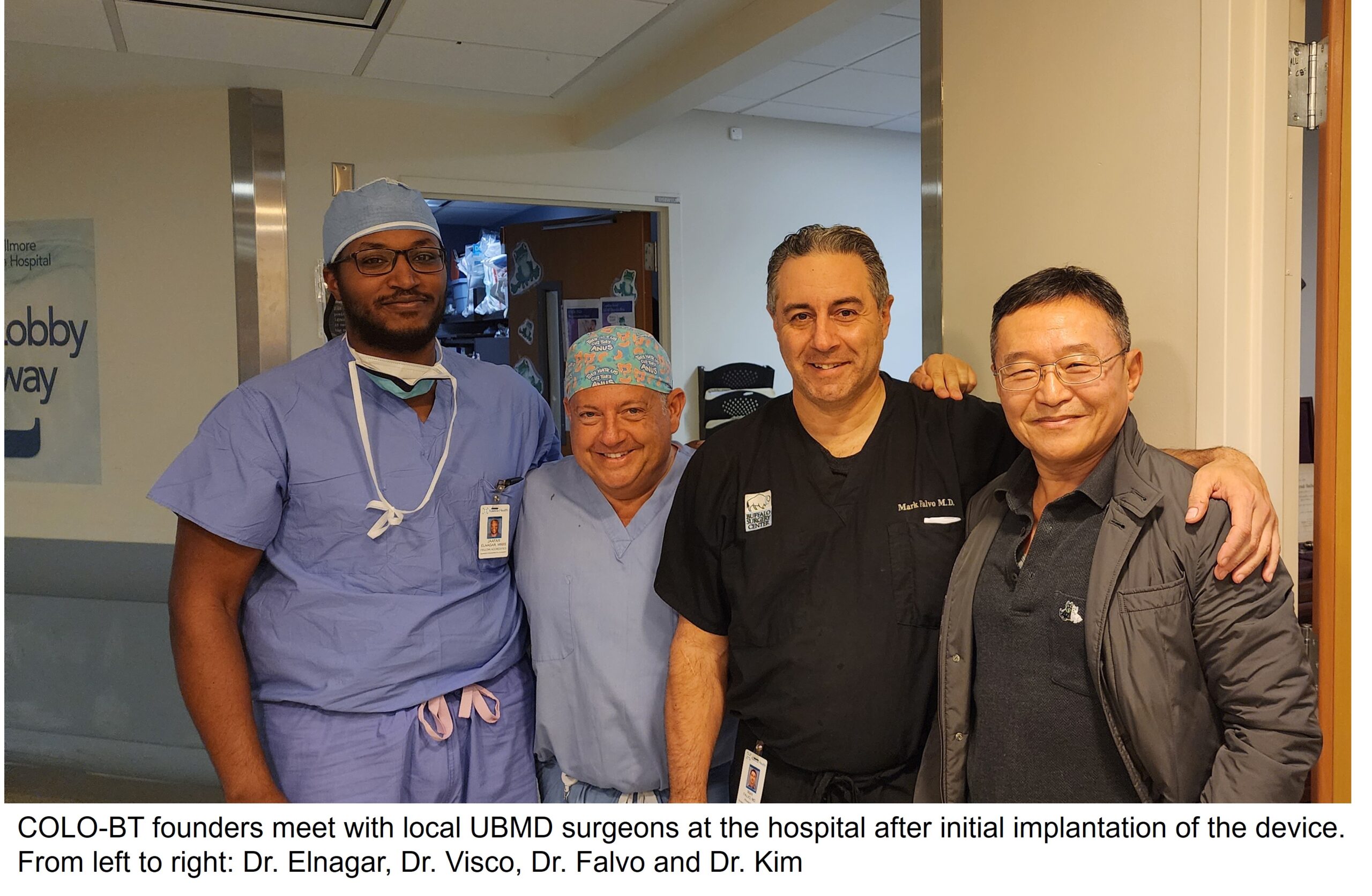
Local colorectal surgeons with UBMD are participating in a clinical trial being done at Millard Fillmore Suburban Hospital (MFSH) utilizing a device that revolutionizes colorectal cancer surgery treatment, recovery and quality of life for patients.
The device, Colorectal Balloon Tube, known as COLO-BTTM is a temporary intraluminal bypass device used following colorectal surgery. Developed by Dr. Kim and manufacturer JSR Medical Co. Lid. in Korea, COLO-BT is being used by surgeons there and has received FDA approval for clinical trial use in the U.S. MFSH is one of only three hospitals selected for the trial.
On Monday, the first patient in the U.S. underwent robotic-assisted colorectal cancer surgery and received implantation of the device here at MFSH.
COLO-BT is a medical device used to avoid the need for an ileostomy. An ileostomy is a surgical procedure that attaches part of the small intestine to an opening, or stoma, in the abdominal wall so waste can exit when the colon is not functioning properly. Most patients need a temporary ileostomy for 3-6 months following colorectal cancer surgery to allow the intestines to heal. Then the ileostomy is reversed requiring a second surgery. COLO-BT completely removes the need for an ileostomy and the second reversal surgery. The device significantly reduces the risk of complications associated with colorectal cancer surgery and those commonly developed afterwards.
“This device brings life-changing advancement to the field of colorectal cancer surgery,” said Jeffrey Visco, MD, site medical director of Surgical Services at Millard Fillmore Suburban Hospital. “COLO-BT reduces complications that can occur with these complex surgeries and eliminates the patient having to wear an ostomy bag and undergo a second reversal surgery down the road. All significant improvements in patient care and safety that speed up recovery and improve quality of life for patients. We are very happy to be a part of this promising clinical trial,” said Visco.
The COLO-BT study is set to allow 256 patients who meet specific criteria to participate in the clinical trial. Baylor and Penn State are also conducting the trial, however UBMD surgeons at MFSH are serving as the lead investigators in the clinical study.


